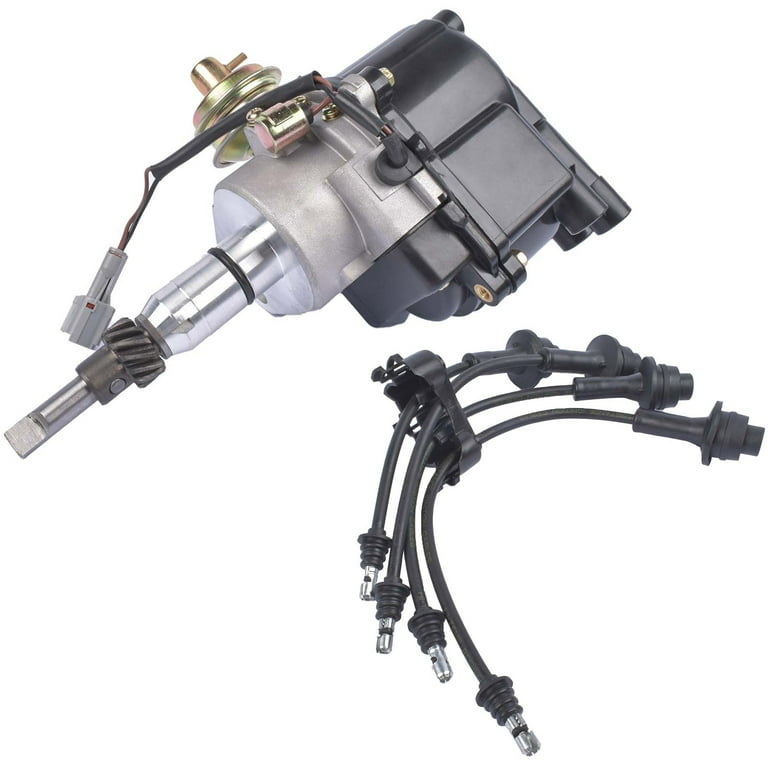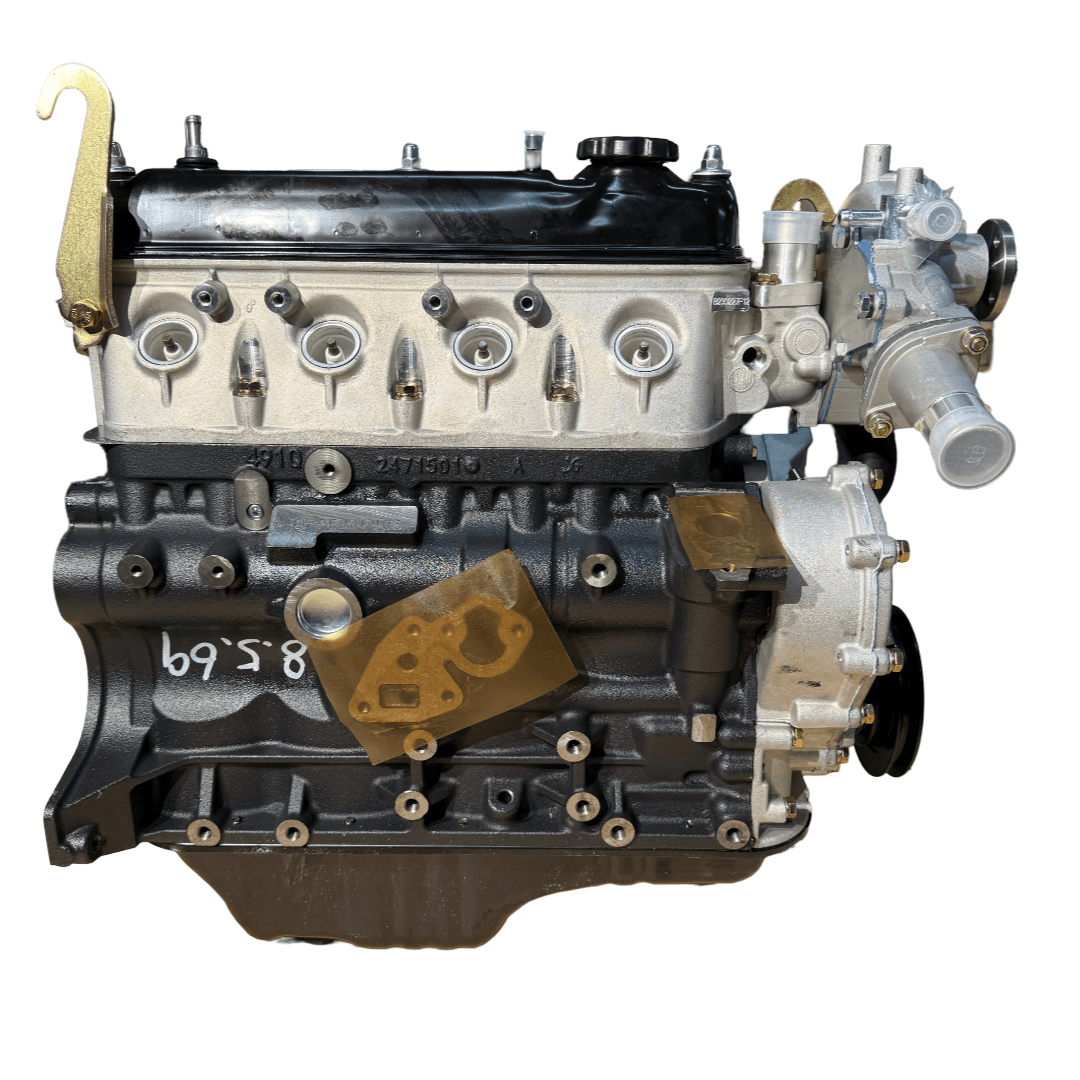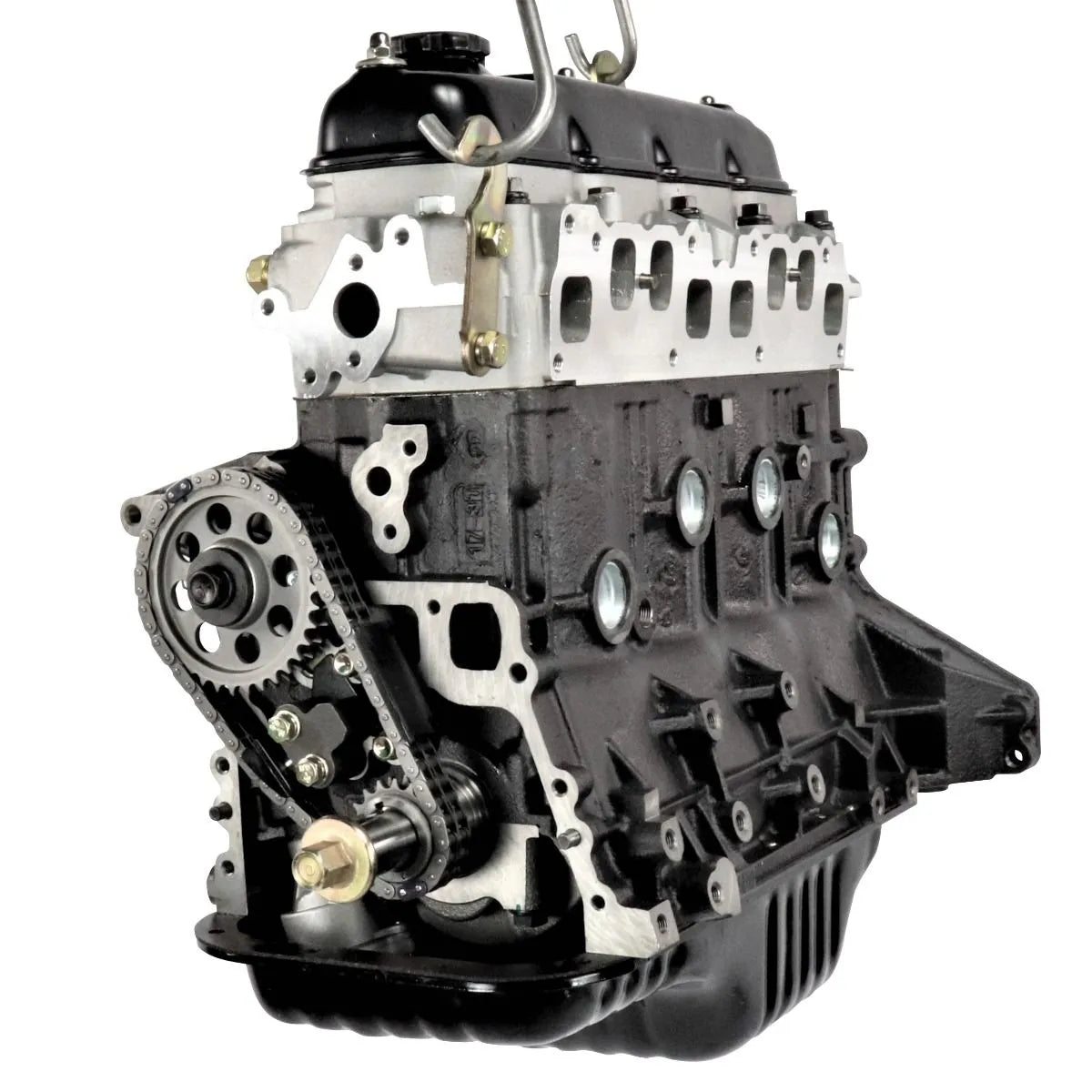Checking Out the Different Kinds Of Engine: Which One Fits Your Demands?
Interior burning engines continue to dominate due to their integrity, while electric engines are gaining grip for their sustainability. Hybrid engines provide a versatile concession, and diesel engines stand out for their power in demanding applications.

Internal Combustion Engines
Interior combustion engines (ICEs) are the foundation of contemporary transport, powering a huge variety of lorries from cars and trucks to airplanes. These engines operate the concept of converting gas right into power with a collection of regulated explosions within a combustion chamber. One of the most usual sorts of ICEs include gas engines, diesel motor, and rotating engines, each designed to fulfill details performance and effectiveness demands.
Fuel engines typically utilize trigger ignition, while diesel motor rely on compression ignition, leading to distinct differences in fuel effectiveness and power output (4y engine). Rotary engines, or Wankel engines, supply a portable style and smooth procedure, however are less generally made use of in mainstream applications
ICEs have actually gone through substantial developments in innovation, including the intro of turbocharging and fuel shot systems, which boost total efficiency and efficiency. In spite of their effectiveness improvements, ICEs face boosting scrutiny because of their ecological effect, specifically relating to greenhouse gas discharges. As the auto industry evolves, the future of ICEs remains a topic of debate, stabilizing efficiency, performance, and ecological factors to consider. Nonetheless, they continue to play a crucial role in global transportation facilities.
Electric Engines
As issues about ecological sustainability and nonrenewable fuel source dependence expand, electric engines have arised as an engaging option to internal combustion engines. These engines make use of electrical motors powered by batteries or fuel cells, providing a cleaner and extra effective means of propulsion.
One of the key benefits of electric engines is their lowered discharges. Unlike conventional engines that burn fossil gas, electric engines produce absolutely no tailpipe discharges, considerably lowering air contamination and adding to enhanced public health. In addition, the performance of electric motors often surpasses that of internal burning engines, converting a higher proportion of power from the power source right into useful energy for activity.
Electric engines are additionally significant for their quiet operation, making them ideal for city atmospheres. 4y engine. The simpleness of their style causes fewer relocating parts, which can result in reduced upkeep costs and enhanced integrity in time
Nonetheless, obstacles stay, consisting of battery production effects, billing infrastructure, and variety limitations. Regardless of these hurdles, the growing financial investment in electrical car innovation and renewable power sources factors towards a promising future for electric engines, positioned to play a critical role in the change toward sustainable transportation.
Crossbreed Engines
Mixing the benefits of both electrical and traditional inner burning engines, hybrid engines stand for a versatile service in the mission for effective and lasting transport. These engines incorporate a fuel or diesel engine with an electric motor, allowing for enhanced gas performance and lowered exhausts contrasted to conventional vehicles.
Hybrid engines run in several modes, utilizing the electric motor for low-speed driving and the internal combustion engine for greater rates or when even more power is required. This vibrant procedure not only improves fuel economic climate however additionally adds to a smoother driving experience. Regenerative braking is read one more important attribute, catching power usually lost throughout stopping and rerouting it to charge the battery.

As consumers increasingly focus on eco-friendliness, hybrid engines stand out as a sensible option, providing a reliable balance of efficiency, efficiency, and ecological obligation. This adaptability makes them ideal for urban travelling and long-distance travel alike.
Diesel Motor
Effectiveness and power are hallmarks of diesel engines, which have long been preferred for their effectiveness and gas economic climate. These engines operate the principle of compression ignition, where air is pressed to a heat prior to fuel is infused, igniting it without the demand for stimulate plugs. This procedure enables diesel motor to achieve greater thermal efficiency contrasted to gasoline engines, equating right into much better gas mileage and reduced carbon dioxide discharges.
Diesel motor are specifically well-suited for durable applications such as vehicles, buses, and industrial equipment, where torque and resilience are vital. Their layout generally includes stronger elements to withstand the greater stress created throughout procedure, causing longer solution life and reduced maintenance prices.

Different Fuel Engines
While diesel engines have lengthy controlled the landscape of durable power sources, different fuel engines are acquiring grip as viable alternatives for a much more sustainable future. These engines make use of a range of fuels, such as pressed gas (CNG), hydrogen, propane, and ethanol, aiming to lower greenhouse gas discharges and reliance on helpful hints fossil gas.
One substantial advantage of alternative gas engines is their potential to reduced carbon footprints. As an example, CNG engines release fewer toxins contrasted to traditional diesel motor, making them suitable for city transit systems and fleets looking for to enhance air high quality. Ethanol, originated from biomass, not just decreases exhausts but likewise sustains agricultural economic climates.
Hydrogen gas cells represent a sophisticated growth in this realm, supplying zero-emission power through a chain reaction in between hydrogen and oxygen. Challenges such as framework advancement and manufacturing prices remain obstacles to extensive fostering.
Verdict
Interior combustion engines offer reliability, while electrical engines focus on sustainability and lowered upkeep. Crossbreed engines integrate the advantages of both, boosting effectiveness, whereas diesel engines offer exceptional power and torque for heavy-duty applications.
Crossbreed engines use a flexible compromise, and diesel engines stand out for their power in requiring applications. The most typical types of ICEs include fuel engines, diesel engines, and rotary engines, each developed to meet particular efficiency and effectiveness imp source needs.
Unlike traditional engines that melt fossil fuels, electrical engines create zero tailpipe exhausts, considerably lowering air pollution and contributing to improved public wellness.Hybrid engines run in a number of modes, making use of the electric motor for low-speed driving and the inner combustion engine for greater speeds or when even more power is needed. Crossbreed engines integrate the advantages of both, improving effectiveness, whereas diesel engines give exceptional power and torque for heavy-duty applications.